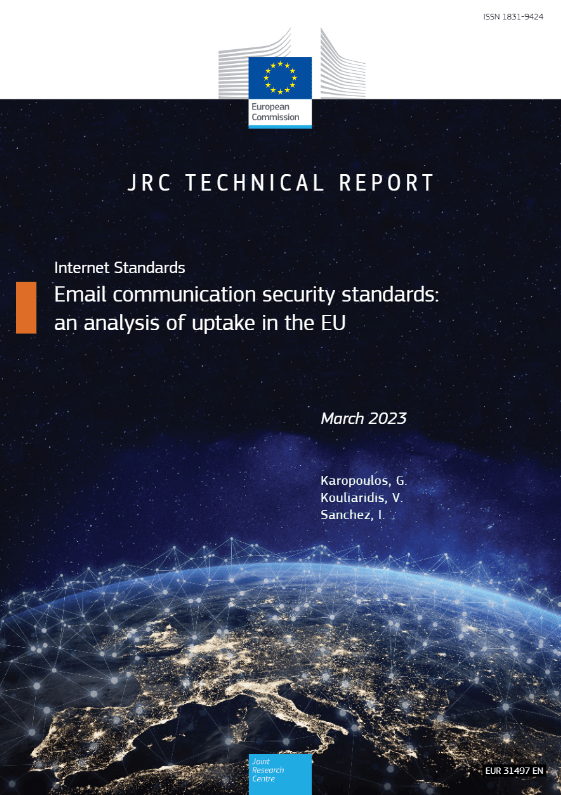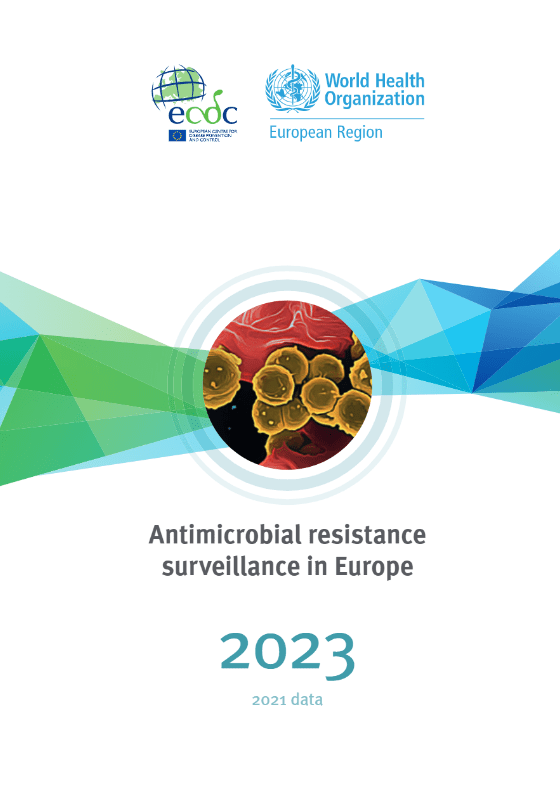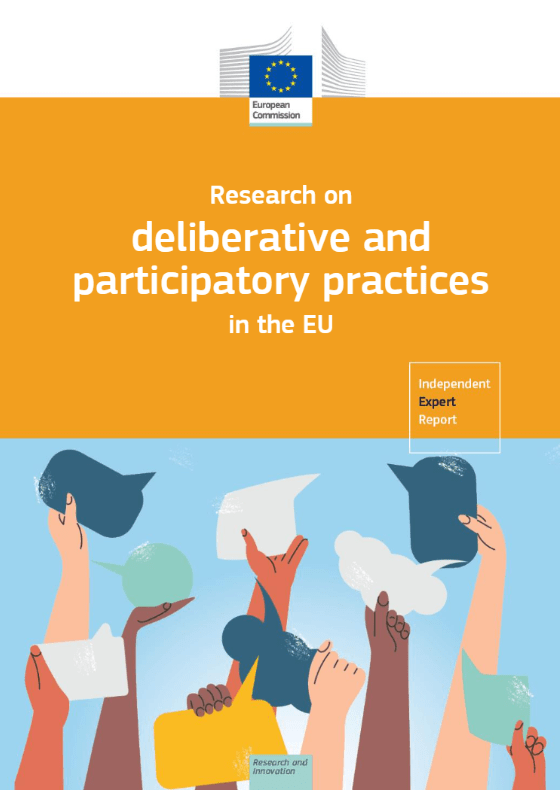
CDE Almería - Centro de Documentación Europea - Universidad de Almería
Centro de Documentación Europea de la Universidad de Almería
Cultura y Educación
Documentación comunitaria en las áreas de Cooperación Internacional Universitaria, Digitalización en el Ámbito Educativo, Espacio Europeo de Educación Superior y Patrimonio Cultural Europeo. Contiene también las últimas noticias, mediateca y boletines relacionados con la materia.
Estás aquí: Fondo Digital CDE > Cultura y Educación

Ensuring the interoperability and security of email communications is one of the cornerstones of a resilient and open Internet. In this context, the wide adoption of key Internet security standards, such as StartTLS, SPF, DKIM, DMARC, DANE and DNSSEC, is essential for a safe cyberspace for everyone. This report assesses the level of uptake of the above set of standards in Q1 2023 across EU Member States, comparing it to the global status. The analysis uses data from publicly available data sources and assessment tools, as well as from measurements conducted by the European Commission’s Joint Research Centre. Our findings show that the averagelevel of adoption of all standards is similar to previous measurement periods (Q1 and Q2 2022), with StartTLS, SPF and DKIM having high adoption rates in the EU (ranging from about 70 to 95%), DMARC following with medium adoption (around 50%), and DANE with DNSSEC showing very low uptake, between 1 and 4% respectively.
[Leer Más]The results presented in this report are based on antimicrobial resistance (AMR) data from invasive isolates reported to the Central Asian and European Surveillance of Antimicrobial Resistance (CAESAR) network and the European Antimicrobial Resistance Surveillance Network (EARS-Net) in 2022 (data referring to 2021). In total, 16 countries reported data to CAESAR, while 29 countries, including all of those in the European Union (EU) and two from the European Economic Area (EEA) (Iceland and Norway), reported data to EARS-Net.
[Leer Más]EU institutions are committed to guaranteeing a productive dialogue between citizens and public officials, enabling citizen participation and engagement in policymaking. EU-funded research on deliberative and participatory practices can provide insights for policymakers seeking more and better engagement with citizens. This report pursues two main objectives: to map research on deliberative and participatory practices in the EU, and identify gaps requiring further research, and to make recommendations to policymakers at all levels (EU, national, regional, and local) about possible ways forward. Specifically, the report suggests how to engage better with citizens and how to coordinate, consolidate and expand the implementation of deliberative and participatory practices, considering their multi-level dimensions in a diverse EU. Furthermore, in its conclusion, the report proposes general principles for establishing a European Charter for Citizen Participation (not included in this executive summary), which was a request emanating from the Conference on the Future of Europe.
[Leer Más]- « Anterior
- 1
- …
- 121
- 122
- 123
- 124
- 125
- …
- 3.710
- Siguiente »
Noticias relacionadas
Boletines CDE
- BOLETÍN INFORMATIVO EDUCACIÓN Y CULTURA EN LA UE (Nº9)
- BOLETÍN INFORMATIVO EDUCACIÓN Y CULTURA EN LA UE (Nº8)
- BOLETÍN INFORMATIVO EDUCACIÓN Y CULTURA EN LA UE (Nº7)
- BOLETÍN INFORMATIVO EDUCACIÓN Y CULTURA EN LA UE (Nº6)
- BOLETÍN INFORMATIVO EDUCACIÓN Y CULTURA EN LA UE (Nº5)
- BOLETÍN INFORMATIVO EDUCACIÓN Y CULTURA EN LA UE (Nº4)
- BOLETÍN INFORMATIVO EDUCACIÓN Y CULTURA EN LA UE(Nº 3)
- BOLETÍN INFORMATIVO EDUCACIÓN Y CULTURA EN LA UE (Nº 2)
- BOLETÍN INFORMATIVO EDUCACIÓN Y CULTURA EN LA UE (Nº1)








